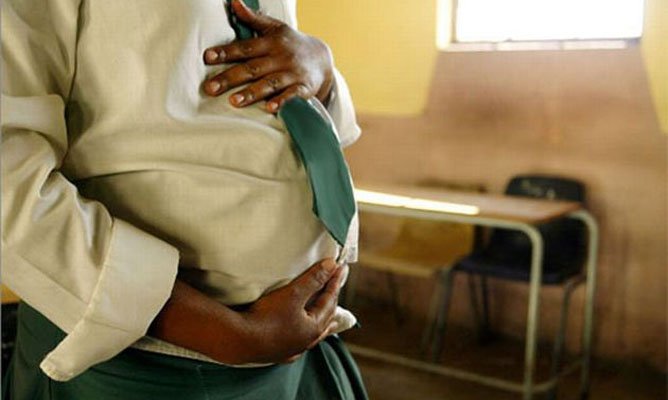A group that advocates for children, Relief for Children in Emergencies, says combating adolescent pregnancies requires a whole societal approach that involves men and boys, as well as the effective law enforcement, poverty eradication and a shift in sociocultural norms.
Relief for Children in Emergencies also expressed concern at how police were slow to respond on child pregnancies while communities were not reporting cases that came to their attention as much as they should.
Following reports of a recent case involving a nine-year-old pregnant girl admitted at local Bulawayo hospital, Relief for Children in Emergencies expressed alarm and deep concern about the rising cases of child pregnancies reported throughout Zimbabwe.
Child pregnancies are against Zimbabwe’s constitutions, according to Relief for Children in Emergencies, which works to break cycles of child poverty, hunger, exploitation, abuse, and disease through integrated advocacy, long-term development support, and humanitarian disaster emergency response.
“This violation includes a number of local and international legal instruments that are meant to promote and protect the rights and welfare of children. Adolescent pregnancy has huge and sometime catastrophic consequences that have ben documented internationally over many years,” said the Programmes Coordinator, Samkeliso Ncube.
Ncube explained that when a girl child became pregnant, she was forced to drop out of school and into, among other things, child marriages, prostitution, unsafe abortions, suicide, and poverty.
“It also poses additional risks of increased maternal and child morbidity and mortality, pregnancy complications, such as obstetric fistula and uterine rapture. Furthermore, babies born from adolescent pregnancy are usually associated with low birth eight, premature births, malnourished babies and malnutrition further worsening the situation for all stakeholders,” she said.
“While many children are tricked into early sex to escape poverty, the truth is none of them actually escape poverty. Once pregnant, the girl child sinks into deeper poverty and desperation which in turn increase risky behaviour, exposing her to HIV and STIs.”
Ncube claims that because the girl child also drops out of school, she misses out on the tools that education provides her in her fight against poverty.
“In turn, this worsens the cycle of poverty and exploitation,” said the child activist.
As a result, Relief for Children in Emergencies believes that addressing child pregnancies required a collective community approach.
“Combating adolescent pregnancies requires the whole of society approach , including men and boys effective application of the law, eradication of poverty, change in socio-cultural norms and improved access to credible information targeting girls at risk, men and boys and community leaders,” said the child activist.
“This has been proved to work around the world. Currently police are too slow off the mark communities are not reporting cases that come to their knowledge as much as they should and when such cases come up punishment is virtually non existent and very little custodial deterrence on offenders. We need far more robust measures.”
Ncube said this is why Relief for Children in Emergencies was urging the government and local community leaders to take firm and uncompromising child-sensitive measures to protect the girl child from the scourge of child pregnancies.
“These include closing legislative gaps, making sure there is effective investigation and prosecution and imposing stiffer penalties. We further call upon sustained awareness campaigns targeting at risk communities and girls throughout the country,” she summed.

